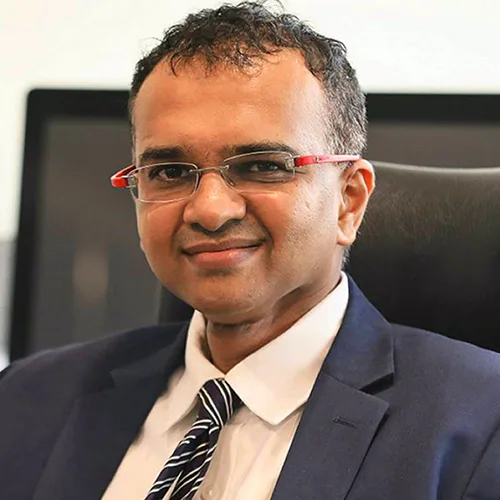Table of content
- 0.1 During TechSparks Mumbai 2024, Dilip Asbe, the head of NPCI, emphasized the imperative for Indian fintech companies to engage in relentless development over the next 5-10 years.
- 0.2 He underscored India’s potential for exponential growth across various sectors, including digital payments, insurance, and credit products.
- 1 India defies the conventional ’80:20 market’
- 2 Who is Mr. Dilip Asbe
During TechSparks Mumbai 2024, Dilip Asbe, the head of NPCI, emphasized the imperative for Indian fintech companies to engage in relentless development over the next 5-10 years.
He underscored India’s potential for exponential growth across various sectors, including digital payments, insurance, and credit products.
Despite UPI’s impressive performance across demographics, recent regulatory scrutiny has caused ripples within the broader fintech ecosystem. Founders are apprehensive about whether RBI’s regulatory actions might stifle innovation and constrict capital inflows. Asbe advocates for “responsible innovation” as the path forward, acknowledging that innovation has been pivotal in India’s fintech journey thus far.
The fintech landscape in India stands at the brink of remarkable expansion, with projections suggesting a 10x increase in payments, a 1,000x surge in insurance, and a 10,000x rise in credit over the forthcoming five years. These estimates stem from the National Payments Corporation of India (NPCI), the entity overseeing retail payments nationwide. The driving force behind this surge is the Unified Payments Interface (UPI), which recently recorded transactions worth Rs 18.4 lakh crore in January.
Despite these achievements, Asbe believes that UPI has yet to reach its full potential and anticipates substantial growth both for merchants and consumers. Speaking at TechSparks Mumbai 2024 in a discussion with Shradha Sharma, the Founder and CEO of YourStory, Asbe urged Indian fintech firms to prepare for sustained efforts in the coming decade.
Considering India’s population of 1.4 billion and the annual travel of 30 million individuals abroad, Asbe emphasized the need for fintech companies to strategize on tapping into this vast market. NPCI, in collaboration with the Reserve Bank of India (RBI) and India’s foreign missions, is actively working on expanding cross-border payments through India’s indigenous digital payment infrastructure. The objective is to simplify payments for Indian travelers overseas and facilitate real-time account-to-account transfers to connect the diaspora.
Asbe disclosed plans for extending UPI services to other countries using India’s digital payment infrastructure. He highlighted the government’s commitment to leveraging India’s advancements for the global public good. NPCI and NPCI International are aligning with this vision to execute cross-border payment initiatives, as articulated by India’s Prime Minister.
India defies the conventional ’80:20 market’
India defies the conventional ’80:20 market’ paradigm, with UPI already reaching 300 million consumers and the potential to expand 2-3 times, as per Asbe’s insights. While this growth trajectory may naturally unfold over 15 years, the challenge is to expedite it within a 5-year window, necessitating substantial capital investment to leverage network effects effectively.
A distinctive aspect of India’s market dynamics is the absence of the typical ’80-20 rule’ observed in digital payments, where 20% of the population does not disproportionately contribute to 80% of the transaction volume and value. Asbe emphasized the country’s diverse and evenly distributed market landscape, underscoring its immense potential.
Highlighting the importance of collaboration between regulators and fintech players, Asbe pointed out the existence of regulatory sandboxes and dedicated fintech divisions within RBI, providing avenues for innovative initiatives. He stressed the significance of focusing on specific niche areas within fintech rather than attempting to cover everything comprehensively.
Reflecting on RBI’s recent scrutiny of Paytm, Asbe expressed confidence in the founder’s resilience, emphasizing their ability to navigate challenges and rebound resiliently. He reassured that the fintech community views NPCI as a supportive entity, fostering an innovation-centric culture since its inception.
Who is Mr. Dilip Asbe
Mr. Dilip Asbe currently serves as the MD & CEO of the National Payments Corporation of India (NPCI), following his tenure as the Chief Operating Officer (COO) of the same organization.
His contributions are integral to the conception, development, and management of significant payment processing platforms, including the Unified Payments Interface (UPI), Bharat Interface for Money (BHIM), Immediate Payment Service (IMPS), and India’s indigenous card network, RuPay.
Notably, Mr. Asbe has been actively involved in establishing crucial payment infrastructure such as the National Electronic Toll Collection (NETC), RuPay international debit and credit card, and Direct Benefit Transfer (DBT) platforms utilizing the Aadhaar Payments Bridge (APB). He played a key role in the creation of the Aadhaar Enabled Payment System (AEPS) and in setting MicroATM standards for inclusive financial services in collaboration with UIDAI.
His leadership extends to the setup and management of the National Automated Clearing House (NACH), where he introduced new functionalities like the E-Mandate, Cheque Truncation System (CTS), and National Financial Switch (NFS). Additionally, Mr. Asbe pioneered Cashnet, India’s first ATM shared network, and real-time mobile top-up systems for Euronet.
Under his guidance, NPCI’s robust platforms now process over 30 million transactions daily. Mr. Asbe has been actively involved in committees established by the Reserve Bank of India (RBI) and the Government of India, contributing to pivotal initiatives such as the Bharat Bill Pay System (BBPS) and Mobile Banking.
With over two decades of experience in the Financial Services/Payment Eco-System across the Asia Pacific region, Mr. Asbe possesses comprehensive knowledge of industry standards including PCI DSS, ISO 9001, ISO 22301 Business Continuity Management System (BCMS), and ISO 27001:2013 Information Security Management System (ISMS).
His illustrious career includes significant milestones such as setting up infrastructure for Euronet worldwide in the Asia Pacific region and Prizm Payments Services in India, including the establishment of global development centers.
Mr. Asbe holds a Master of Science (MSc) Degree in Global Management (Executive Programme) from the London School of Economics and Political Science (LSE), London, United Kingdom. He also earned a Bachelor of Engineering (BE) Degree with Distinction from Fr. Conceicao Rodrigues College, Father Angels Ashram, Bandra, Mumbai.
For More Articles Click Here.
